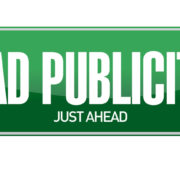
Content marketing, in a nutshell, is all about connecting with your clients. It’s not about selling one specific product over another. It’s about positioning your business as a valuable and relevant resource that your clients have already come to trust and depend on, even before they buy anything from you.
An effective content marketing strategy can do a lot for your business. Providing quality content makes it easier to be found by the right people. You’re able to build an interested and engaged audience, which can also help build loyalty with existing clients. And content marketing can also be cheaper and more cost-effective than traditional marketing methods.
 Content marketing vs. traditional marketing
Content marketing vs. traditional marketing
Successful marketing is all about influencing a person’s decision during the consumer buying process.
The 6 stages of the consumer buying process are:
- Identify problems
- Search for information
- Calculate alternatives
- Decide to purchase
- Purchasing
- Evaluating
The goal of traditional marketing is to convince someone to pick one product over another. It’s focused on the third, fourth, and fifth stages of the buying process: here is my product, here is why it is better than the other options, and here is why you should buy it right now.
Content marketing, on the other hand, focuses on all the stages of the buying process. It’s about building brand loyalty by providing high-quality, relevant content before the consumer even recognizes their need for your product.
It’s a long-term strategy that is focused on building relationships and brand loyalty before, during, and after the buying process.
But making that connection can be easier said than done. That’s where another key element to content marketing comes in: storytelling.
The art of storytelling
Humans have communicated for thousands of years through storytelling. When you come home in the evening and tell your family about your day, you’re telling them stories about what happened to you. You’re painting a picture that they can visualize in their mind so they don’t just know what happened, but they can feel what you felt as you went through it.
A Stanford research study found that statistics alone have a retention rate of 5-10%, but when coupled with anecdotes, the retention rate rises to 65-70%. When you tell a story effectively, you don’t just connect to the thinking part of the brain, you connect to the feeling part.

“When it comes to inspiring people to embrace some strange new change in behavior, storytelling isn’t just better than the other tools. It’s the only thing that works.”
Forbes
Incorporating effective storytelling into your marketing techniques is where content marketing really outshines traditional marketing methods.
Content is key
Content marketing is focused on telling the story of your business in a way that connects with your clients on both an intellectual and emotional level. Because that’s what is going to make them remember you. And the best way to do that is by providing them with content they find valuable and interesting.

“Content marketing is a strategic marketing approach focused on creating and distributing valuable, relevant, and consistent content to attract and retain a clearly defined audience—and, ultimately, to drive profitable customer action.”
Content Marketing Institute
The three keywords from the definition above are valuable, relevant, and consistent.
You want content that consumers find interesting enough to read and then come back for more, even if they’re not in the market for your product or service. Because tomorrow, next week, or even next year their needs may change and you’ll be the name they know and trust.
No matter how good your graphic designers are or how much money you throw behind an advertising campaign, you’re throwing your money away if the content you’re promoting isn’t connecting with your audience.
Luckily, there’s an easy way to fix that. Answer the questions you know potential customers are asking. Address their pain points. Give away your secrets. And do it without even pitching yourself.
They’re on your site. They know you’re the one helping. And we promise, in the end, a solid content marketing strategy will pay off.















